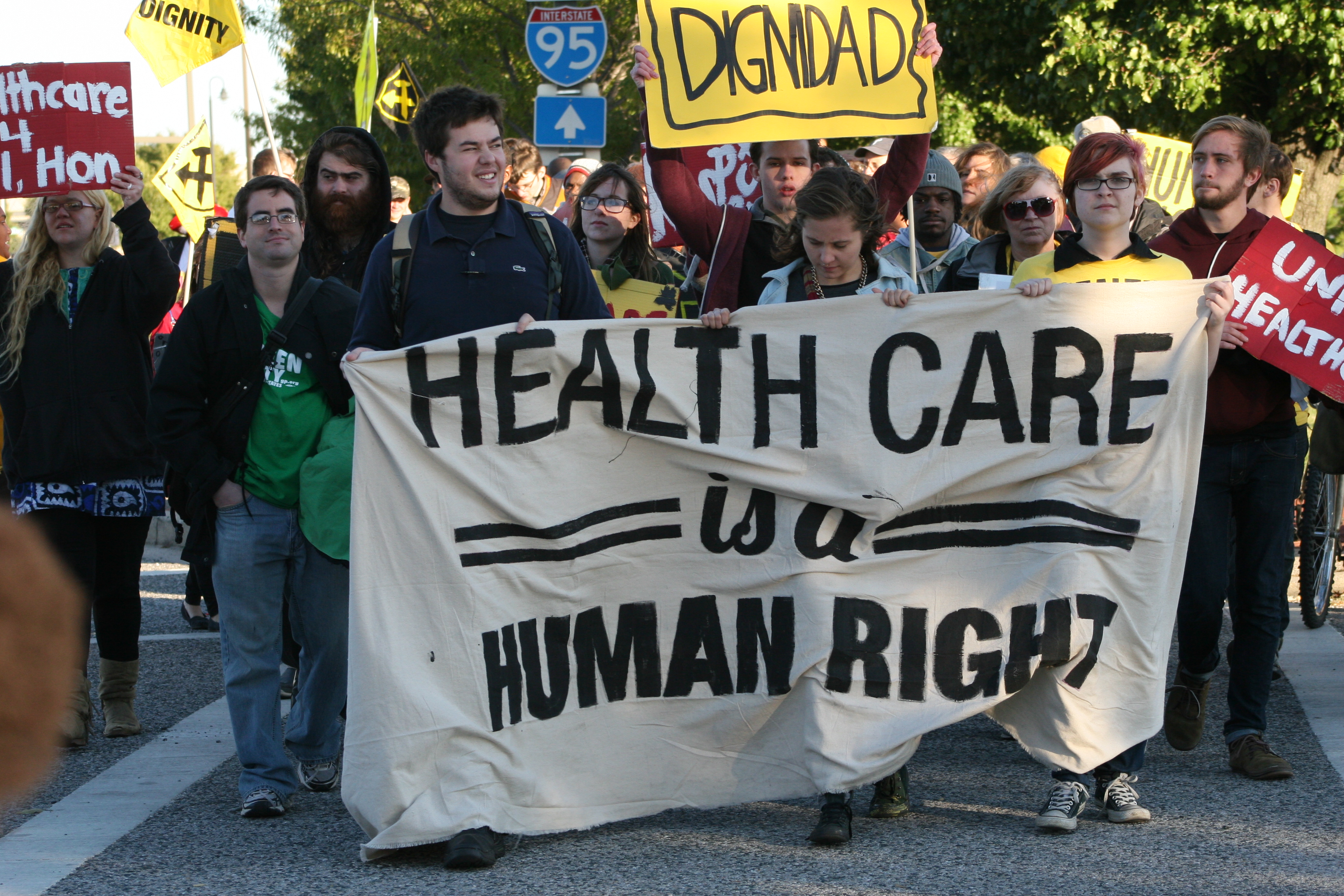
Earlier this month, the Trump administration announced that the United States will deny visas to immigrants who “will financially burden” the health care system. The proclamation requires immigrants prove that they either have approved health insurance – insurance purchased through the Affordable Care Act exchanges won’t count -- within 30 days of entering the United States, or the ability to pay health care costs independent. The Migration Policy Institute estimates that this policy could exclude up to two-thirds of future immigrants.
The proclamation is just the latest step in a broader assault on both the Affordable Care Act (ACA) and the U.S. immigration system over the past few years. The 2017 Tax Cuts and Jobs Act eliminated the ACA’s individual tax penalty for failure to maintain health insurance coverage, bringing it under renewed judicial scrutiny. Meanwhile, in addition to the construction of an unnecessary wall along the southern border and the massive expansion of immigrant detention, the Trump administration has undermined the legal immigration system through repeated cuts to the refugee resettlement program, the denial of asylum to non-Mexican asylum seekers presenting at the southern border, and the discriminatory travel ban.
But the administration’s announcement of the health insurance requirement for immigrants is the first direct intersection of its assault on the ACA and the legal immigration system. Barring immigrants from purchasing insurance on the individual exchange is especially egregious given that the ACA includes subsidies specifically intended for immigrants.
The health care proclamation comes in the midst of legal proceedings in ten separate jurisdictions seeking to block the proposed changes by the Trump administration to the “public charge” rule, which would deny legal permanent residency to many immigrants who use, or might use, public benefits in the future. The U.S. already has a public charge rule focused on individuals who require cash assistance or long-term institutionalization. But the administration is seeking expand the rule to include the use of Medicaid and SNAP food assistance and public housing vouchers, as well as factors like age, English language proficiency, and employment status. On October 11, just four days before the public charge rule was scheduled to go into effect, courts temporarily blocked the implementation of the rule. However, the rule may still go into effect at a later date.
If both are allowed to take effect, the health care proclamation and the proposed public charge rule will have catastrophic consequences for the health and safety of millions of people. Already, one in seven adults in immigrant families reported avoiding public benefit programs, even without the new public charge rule. The expansion of public charge would scare away an even greater percentage of vulnerable people who need public assistance to survive. Combined with the presidential proclamation on health care, the legal immigration system is now seemingly open to only those who can afford it.
When the public charge rule was announced, Acting U.S. Citizenship and Immigration Services Director Ken Cuccinelli crudely modified the language of Emma Lazarus’ poem “The New Colossus” inscribed in the Statue of Liberty, suggesting that we change the language from “Give me your tired, your poor, your huddled masses yearning to breathe free” to “Give me your tired and your poor who can stand on their own two feet.”
An American Jew, Lazarus wrote the poem to signify the statue’s role not only as a beacon of hope for those arriving to Ellis Island, but as a representation of the broader role of the U.S. as a haven for those in need around the world. The United States should not be rejecting the “tired” or the “poor” because they may need help; our nation should accept them because we can provide it. Cuccinelli’s ugly revision ignores the sentiment and the greater meaning of the poem.
A person’s health should not depend on financial standing, nor should it depend on immigration status. Introduced today by Reps. Pramila Jayapal (D-WA-7) and Haaland (D-NM-1), the HEAL for Immigrant Women and Families Act seeks to expand health coverage for immigrants by terminating an existing five-year bar on immigrants using Medicaid and allows undocumented individuals to access the ACA marketplace. Instead of shutting families out from crucial health care services, the HEAL for Immigrant Women and Families Act would help them to thrive.
As Jews, we learn that communities are obligated to provide care for all their members. It is written in the Talmud, “if the physician withholds his services, it is considered as shedding blood” (Shulchan Aruch, Yoreh Dei-ah 336:1). Coupled with the Torah’s command that “you shall have one standard for stranger and citizen alike,” Jewish tradition teaches the importance of broad and complete health coverage for every individual, including immigrants (Leviticus 24:22).
We must not only stand against policies which seek to punish immigrant families for seeking to support their families, but also proactively advocate for legislation like the HEAL for Immigrant Women and Families Act which would restore dignity and security for many immigrant families across the United States.
Related Posts

Remarks from Rabbi Eliana Fischel at Jewish Gathering for Abortion Access

Teens from North Carolina Speak About Environmental Justice


